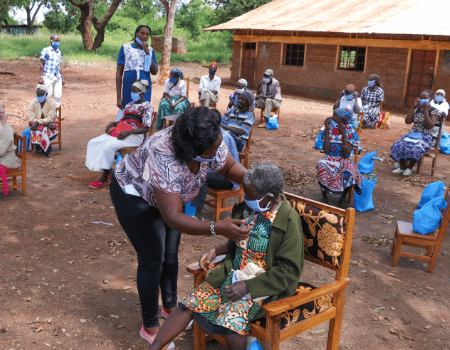Delivered by Women, Led by Women: The Future of Global Health Leadership
The authors note the disparity between leadership roles of men and women in global health and its effect on the response to COVID-19. The work of their organization Women in Global Health is described, including “launching a Gender Equal Health and Care Workforce Initiative in 2021 in partnership with the Government of France and World Health Organization, convening governments and international organizations to leverage commitments for safe and decent work, equal pay and an equal say in leadership for women in health and social care.” They note that women are “80 percent of the world’s nurses and 90 percent of the frontline health workers.” Yet the reality is that “women still deliver health systems led by men.” The authors outline their vision for global health leadership; in brief, and in their words: First, we must change the narrative and see women as drivers of global health, not solely as users of health systems…. Second, women in health and social care need a new social contract… Third, COVID-19 showed that viruses do not respect national borders and we live in an interconnected world… Fourth, beyond gender parity in global health leadership, we need leaders of all genders to be gender transformative leaders.
2020 will go down in history as the year a global pandemic infected around 100 million people worldwide and caused the deaths of nearly 2 million. History, however, is not generally written by women, and there is a danger that history will not record the extraordinary contribution made by the women who comprise 70 percent of health workers and have been on the pandemic frontlines delivering care and saving lives, putting their own health and safety at risk. When the story of the pandemic is written, the credit may go instead to the men, who hold 75 percent of senior decision-making roles in health, even though they are in a minority in the sector. Even more concerning, the world may once again miss an opportunity to leverage women’s important contributions to the health sector by restoring gender equity in the many emerging jobs in the sector and increasing their role in leadership positions.
COVID-19 is a break in history and a chance to fix the structural weaknesses, including gender inequality, in our health and social systems so we can better withstand future shocks. This is our opportunity to rebuild global health security on a stronger and more equal foundation by ensuring that the women who deliver health and social care are leading the systems they know best.
Originally published in Leader to Leader
By Roopa Dhatt and Ann Keeling, Women in Global Health

